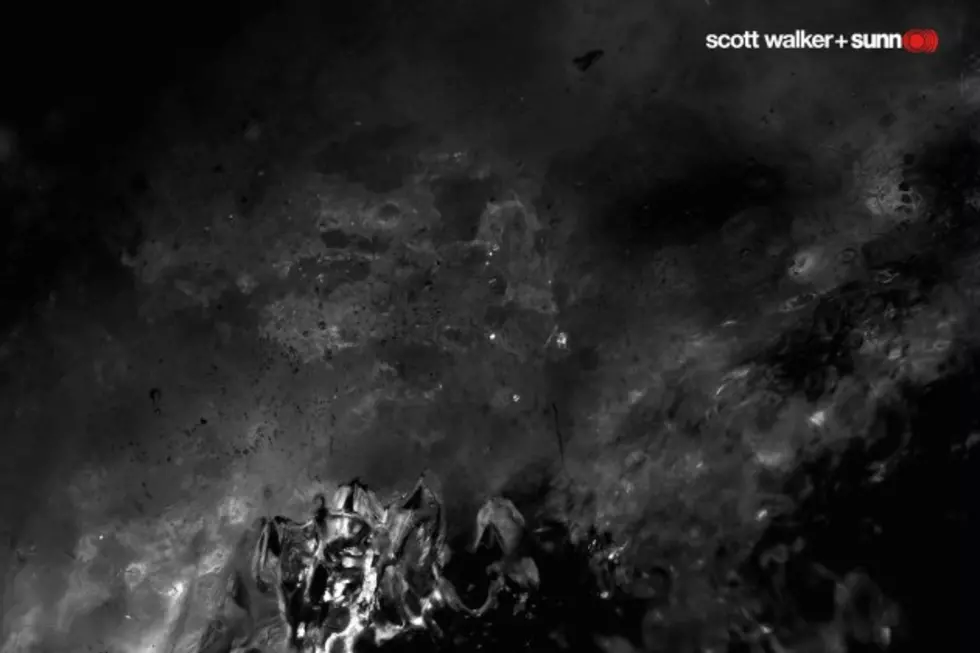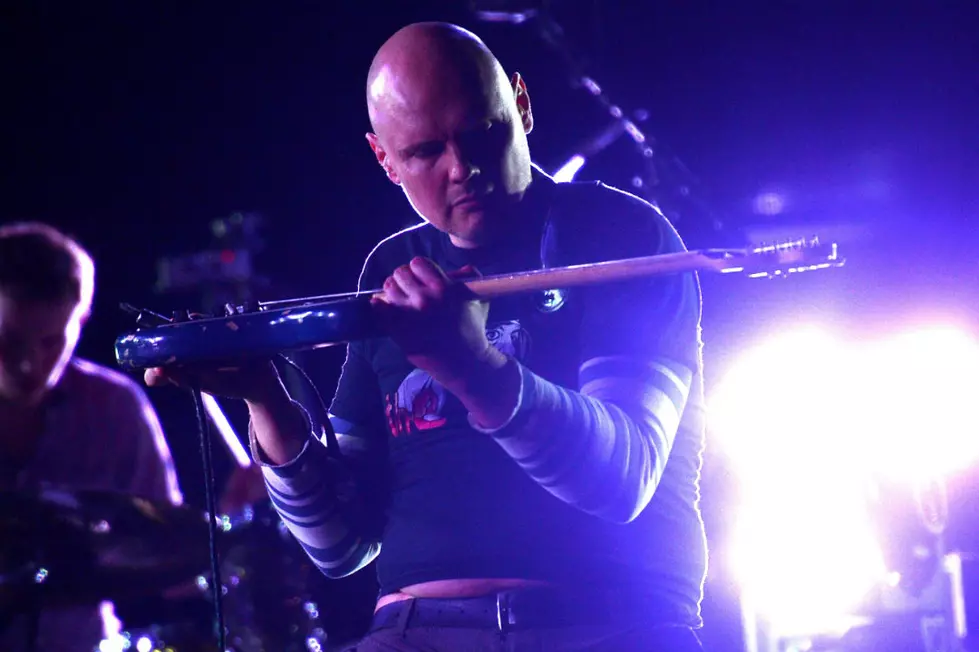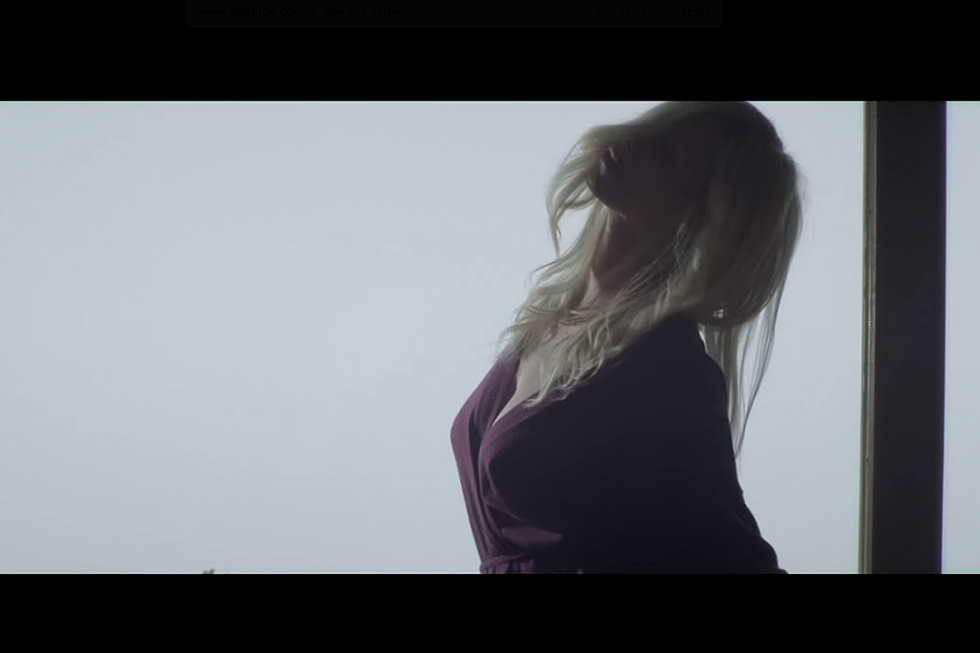
Sunn O))) Give New Life to the Psychotic Pop of Scott Walker
To trace the arc of Scott Walker’s career is to watch a musician constantly in the process of dismantling pop music, right down to its core. Listen to his records chronologically and witness how he’s disfigured the form from its most classic embodiment to something that still contains its DNA but sounds utterly alien, the way the butterfly retains something of the caterpillar.
Walker’s very first records were released together with John Walker, as the Walker Brothers, and represented a kind of pop music in its purest form -- ballads and walls of sound, verse-chorus-verse and three minutes, max. For a time in the early '60s, the Walker Brothers were the biggest band in the U.K. (Walker, born in Ohio and raised in L.A., moved to Europe in the '60s and never came back.)
On Walker's solo albums (‘Scott,' 'Scott 2,' 'Scott 3' and 'Scott 4'), he created his own style of pop music, brimming with pretty arrangements but a little cracked at the edges, dissonant enough to be unsettling. Witness, for example, the chord that opens 1969’s ‘It’s Raining Today’ -- its unsettling pitch, the way it lays underneath an otherwise perfectly pleasant Sunday morning song, undermining its intentions. And always, Walker's voice, a true crooner baritone, a voice made of pure brass, conjuring dry martinis even at its most psychedelic. And then Walker veered even further from conventional notions of key and structure in the ‘70s and ‘80s. Right off the edge, in fact -- a move that earned him the admiration of Brian Eno and David Bowie to go with a level of increasing obscurity that, by the '80s, had engulfed any memory of him as a dashing teen idol. In 1984, he released 'Climate of Hunter,' and then its 1995 follow-up, 'Tilt’ -- darkly operatic, inscrutable, but somehow still “pop” -- as if pop music had pointed itself toward the edge of the universe and set engines at Warp 9.
With 'The Drift' (2006) and 'Bish Bosch' (2012), Walker seemed to find a more comfortable sonic space in which he could fully exorcise the images dancing around in his head, mostly terrifying but also funny -- and gross. Way back in ’66, on a kick, Walker had studied Gregorian chant in a monastery until he was tracked down by crazed fans -- now, he was employing similar methods, writing lyrics first, then accompanying it, upending any conventional sense of melody that remained in his music. Walker, appropriately, describes this music as “theater” and the musicians as “actors.” Flashes of strings burst in and then fade; bells, hammers and knives chime in the background; the occasional blast of guitar. Once, on 'Bish Bosch,' over fart sounds, Walker intones: “Ah, my old scabby satchum / The sphincter’s tooting a tune / If only I could pick you.” It’s a far cry from ‘It’s Raining Today.’
Now, Walker has released a full album with drone metal band Sunn O))), called ‘Soused’ -- replacing his ensemble of squealing strings and crashing percussion with just three collaborators. But the result is surprisingly successful -- it allows Walker to work within a set of limits, keeping his sound more controlled without affecting the depth of his performance and the uber, surreal quality of his music. Sunn O)))'s Stephen O’Malley, Greg Anderson and Tos Nieuwenhuizen provide an abundance of sound, and 'Soused' doesn't sound rigid or one dimensional next to the expansiveness of 'The Drift' or 'Bish Bosch.' In fact, because the sounds are a bit more consistent and more organic, the record is more cohesive than much of Walker's most recent output, as guitars are made to scream and yelp, then ripple off into the distance.
Walker's music has always had the tendency to crawl away from him, to live a life of its own.
Underneath all of it is the sound of that guitar, a deep, otherworldly bass, like beams sent down from the mothership. Walker's music has always had the tendency to crawl away from him, to live a life of its own, and he's used bass to ground it -- he's called it "the binding." Droning beneath all the other sounds is Sunn O)))'s true gift to Walker -- a bass sound dense and foundational, the firmest, richest soil yet on which Walker's stood. It's a long way from the rich, orchestral arrangements of Walker's first four solo albums, but still Walker's brassy baritone, still an element of pop, blackened.
It's an accompaniment so evolved that it's more than an accompaniment -- sounds are alive, the music churns underfoot, and Walker's ensemble of actors are noisier and freer than ever.
More From Diffuser.fm









